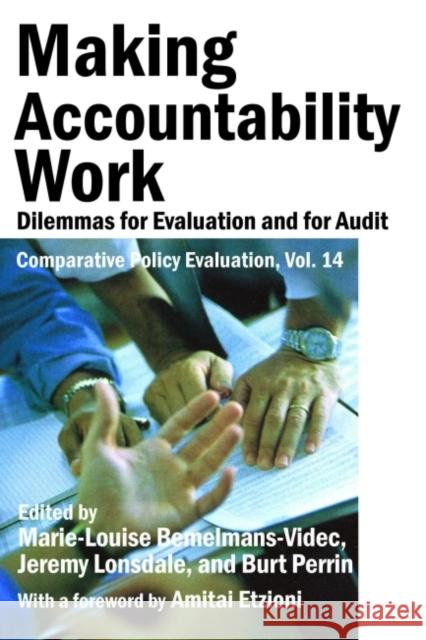Making Accountability Work: Dilemmas for Evaluation and for Audit » książka
Making Accountability Work: Dilemmas for Evaluation and for Audit
ISBN-13: 9781412865555 / Angielski / Miękka / 2017 / 290 str.
Making Accountability Work: Dilemmas for Evaluation and for Audit
ISBN-13: 9781412865555 / Angielski / Miękka / 2017 / 290 str.
(netto: 158,22 VAT: 5%)
Najniższa cena z 30 dni: 161,14
ok. 22 dni roboczych.
Darmowa dostawa!
Like honesty and clean water, -accountability- is invariably seen as a good thing and the absence of accountability is associated with most of the greatest abuses in human history. Accountability is thus closely linked with the exercise of power, the legitimacy of policies, and those pursuing both. This volume explores the paradox that exists today: there are more accountability-related activities now than ever before, yet the public laments what is perceived as a lack of actual accountability. This raises a number of questions: Is there a need for different approaches to establishing accountability or can current arrangements be modified to increase their effectiveness? Are present practices preventing a mature debate about improvements taking place? How can systems awash with performance information ensure that at least some of it makes sense to a wide range of potential users? How have greater accountability and transparency become associated with concerns about perverse incentives and be seen as a costly burden? The volume includes detailed case studies and synthesizes up-to-date research and evidence drawn from very different governmental systems, ending with practical advice for those involved in the accountability processes. In doing so, it attempts to address both conceptual ambiguities about the notion of -accountability- and the practical uncertainties over its implications for democratic government.











